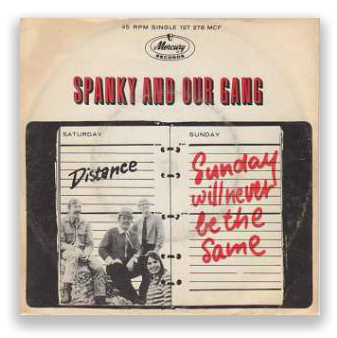We post news and comment on federal criminal justice issues, focused primarily on trial and post-conviction matters, legislative initiatives, and sentencing issues.

CORAM NOBIS – HE WHO HESITATES…
Oliver Wendell Holmes famously lectured a new lawyer from the bench, after the tyro attorney started arguing about justice, “This is court of law, young man, not a court of justice.”
 Well, it’s an imperfect world, but over the centuries, the common-law system developed a body of law authorizing writs – called “extraordinary writs” because they were, indeed, out of the ordinary – each tailored to address some injustice (sorry, Ollie) that the strictures of the law otherwise overlooked. The most famous is the writ of habeas corpus, an order from the court to a jailer to produce the prisoner before it and show by what authority the poor fellow was being detained. Injunctions, orders that a certain activity be stopped, likewise are extraordinary writs, as are their lesser-known prerogative-writ cousins, writs of prohibition, writs of quo warranto, and writs of mandamus. Then, there are the real unknowns, such as the writ of audita querala or writ of error coram nobis.
Well, it’s an imperfect world, but over the centuries, the common-law system developed a body of law authorizing writs – called “extraordinary writs” because they were, indeed, out of the ordinary – each tailored to address some injustice (sorry, Ollie) that the strictures of the law otherwise overlooked. The most famous is the writ of habeas corpus, an order from the court to a jailer to produce the prisoner before it and show by what authority the poor fellow was being detained. Injunctions, orders that a certain activity be stopped, likewise are extraordinary writs, as are their lesser-known prerogative-writ cousins, writs of prohibition, writs of quo warranto, and writs of mandamus. Then, there are the real unknowns, such as the writ of audita querala or writ of error coram nobis.
Many courts have limited the use of extraordinary writs, but not the Feds: the All Writs Act, passed as part of the Judiciary Act of 1789, authorizes federal courts to “issue all writs necessary or appropriate in aid of their respective jurisdictions and agreeable to the usages and principles of law.”
 Federal prisoners, who as a group sat in the back of the room during high school government class, discover the All Writs Act like travelers in the desert stumbling on an oasis of cool water and verdant fruit trees. With post-conviction petitions seemingly limited to a single 28 USC 2255 motion except in the most restricted of circumstances, inmates seeking a second or late-filed bite of the apple often consider a petition for a writ of error coram nobis to be a novel end run around the ban on multiple 2255s may want to look at what happened to Reuben Delhorno.
Federal prisoners, who as a group sat in the back of the room during high school government class, discover the All Writs Act like travelers in the desert stumbling on an oasis of cool water and verdant fruit trees. With post-conviction petitions seemingly limited to a single 28 USC 2255 motion except in the most restricted of circumstances, inmates seeking a second or late-filed bite of the apple often consider a petition for a writ of error coram nobis to be a novel end run around the ban on multiple 2255s may want to look at what happened to Reuben Delhorno.
This is largely because newbies in the law library have forgotten or never knew what my wife calls the “Greater Minds Than Mine” rule. Any novel dodge or loophole you may discover in the law has already been found, beaten like a rented mule, and usually plugged by one court of aother. Greater minds than yours (or mine) have stumbled on your discovery a long time before you (or I) did.
 Reuben filed a petition for writ of error coram nobis, seeking to get out of a plea agreement for a conviction on which he had already served his sentence, in order to avoid deportation.
Reuben filed a petition for writ of error coram nobis, seeking to get out of a plea agreement for a conviction on which he had already served his sentence, in order to avoid deportation.
Coram nobis is a common-law writ available to correct errors of fact and law in criminal cases, but only when the movant is no longer in custody, and (1) the error is of the most fundamental character so as to render the criminal conviction invalid; (2) there are ‘sound reasons’ for the defendant’s ‘failure to seek earlier relief’; and (3) the defendant continues to suffer from his conviction.
Generally, a petition for writ of error coram nobis cannot be used for a second bite of the 2255 apple. As one court put it, given the broad purpose of the Antiterrorism and Effective Death Penalty Act, it would be “astounding if the ‘second or successive’ restrictions on 2255 motions could be rendered wholly ineffective by the simple ruse of labeling future § 2255 motions as petitions for writs of coram nobis.”
But Reuben did not do that. Instead, he sat on his hands while locked up, letting the deadline to file a 2255 pass. Only after he finished his term and found that ICE was waiting to hustle him back to Mexico did he wake up to the errors in his criminal proceeding.
At his change of plea hearing, Reuben said that he was born in Mexico but no one mentioned the immigration consequences of a guilty plea, even though the hearing took place more than a year after the Supreme Court held in Padilla v. Kentucky that a defense lawyer provided ineffective assistance by failing to advise the client that a guilty plea would result in automatic deportation.
 Reuben complained his attorney’s representation was unreasonable, because he never discussed with Reuben the immigration consequences of conviction. The Court was “troubled that apparently neither his counsel, the prosecutor, nor the court raised the issue of the mandatory immigration consequences with him.” However, it found that Reuben lacked evidence that he would not have pled guilty even if he had been told about deportation.
Reuben complained his attorney’s representation was unreasonable, because he never discussed with Reuben the immigration consequences of conviction. The Court was “troubled that apparently neither his counsel, the prosecutor, nor the court raised the issue of the mandatory immigration consequences with him.” However, it found that Reuben lacked evidence that he would not have pled guilty even if he had been told about deportation.
But Reuben’s biggest problem was that he could not explain why he waited five years to raise the issue, instead of on appeal or in a 2255 motion. “A person seeking a writ of coram nobis,” the Court ruled, “must offer sound reasons for his failure to seek relief earlier.” Reuben could not, and thus had his coram nobis dismissed.
United States v. Delhorno, 2019 U.S. App. LEXIS 3977 (7th Cir. Feb. 8, 2019)
– Thomas L. Root






